These spiritual truths outlasted empires for a reason.

Inner peace sounds like something you’re supposed to find on a yoga mat or during a weekend retreat. But long before self-help books and mindfulness apps, people were turning to spiritual teachings to understand the chaos inside them. Every major religion—whether you believe in it or not—offers practices and ideas designed to help the soul breathe easier. And most of them aren’t about being perfect. They’re about being present, grounded, and human.
You don’t need to adopt a belief system to learn from it. These lessons aren’t here to convert you—they’re here to remind you that peace isn’t new. It’s ancient. It’s been passed down for centuries in different words, rituals, and philosophies. And when you strip away the dogma, what’s left is surprisingly universal. If you’ve been craving stillness, clarity, or just a little more room to breathe, these teachings still hold the blueprint.
1. Buddhism teaches that peace begins when you stop resisting what is.
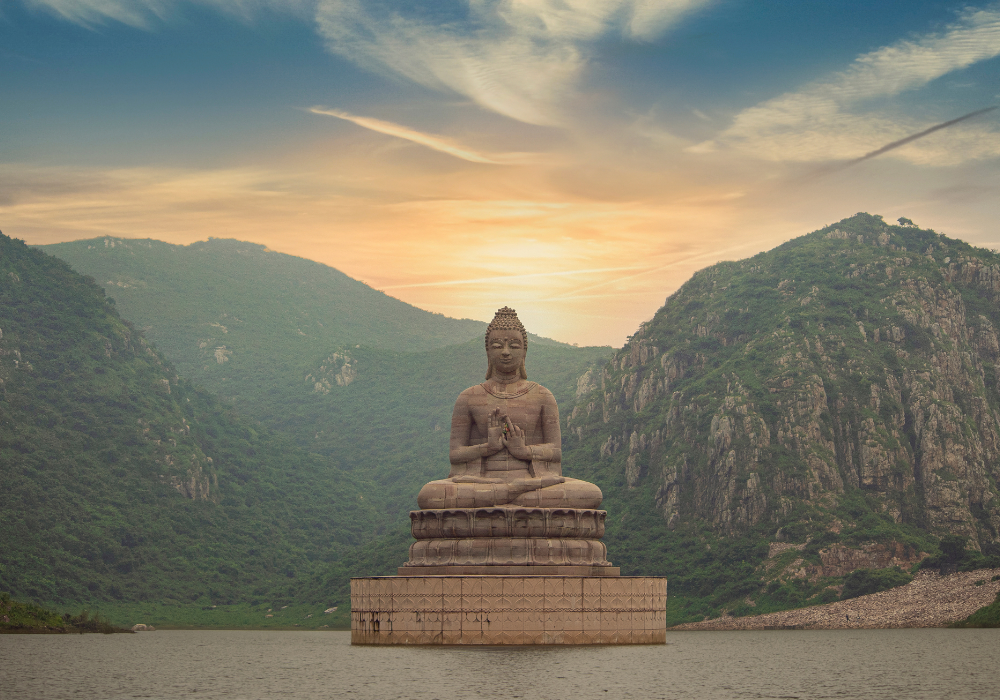
One of Buddhism’s core ideas is simple but profound: suffering happens when we cling to how we think life should be instead of accepting how it is. That doesn’t mean giving up or checking out—it means loosening your grip. Peace starts when you stop trying to force the world, or yourself, into a version that doesn’t match reality. According to writers for Mindfulness, nonattachment is associated with enhanced psychological flexibility and reduced experiential avoidance, contributing to improved mental health outcomes.
This practice is called “non-attachment,” and it’s less about detachment and more about flow. You still care, but you don’t cling. You still feel, but you don’t let your emotions run the show. Life is always shifting—so instead of gripping tight, you breathe through the change. It’s not easy, but it’s liberating.
When you accept what’s happening without constant judgment or resistance, space opens up. Your nervous system relaxes. Your thoughts slow down. And you realize peace was never out there—it was buried under all the ways you were fighting the moment.
2. Christianity reminds us that forgiveness frees the soul—not just the other person.

Forgiveness isn’t just a moral ideal in Christianity—it’s a spiritual tool. Jesus taught that holding onto anger, bitterness, or resentment doesn’t just hurt the person it’s directed at. It poisons you. The act of forgiving isn’t always about reconciliation. It’s about release. It’s a way of unclenching the emotional fist that keeps you in a loop of pain. Per experts at Harvard Health, practicing forgiveness can lead to lower levels of depression, anxiety, and hostility, as well as improved self-esteem and greater life satisfaction.
You don’t have to forget what happened. You don’t even have to tell the person. But letting go of the weight—giving it to God, the universe, or even just time—creates space for peace to return. In Christian practice, forgiveness is as much for the forgiver as it is for the forgiven. It’s not weakness—it’s strength. It’s choosing to stop letting the past run your present. And in a world full of grudges, that kind of freedom can feel like a miracle.
3. Islam grounds peace in daily ritual and sacred rhythm.
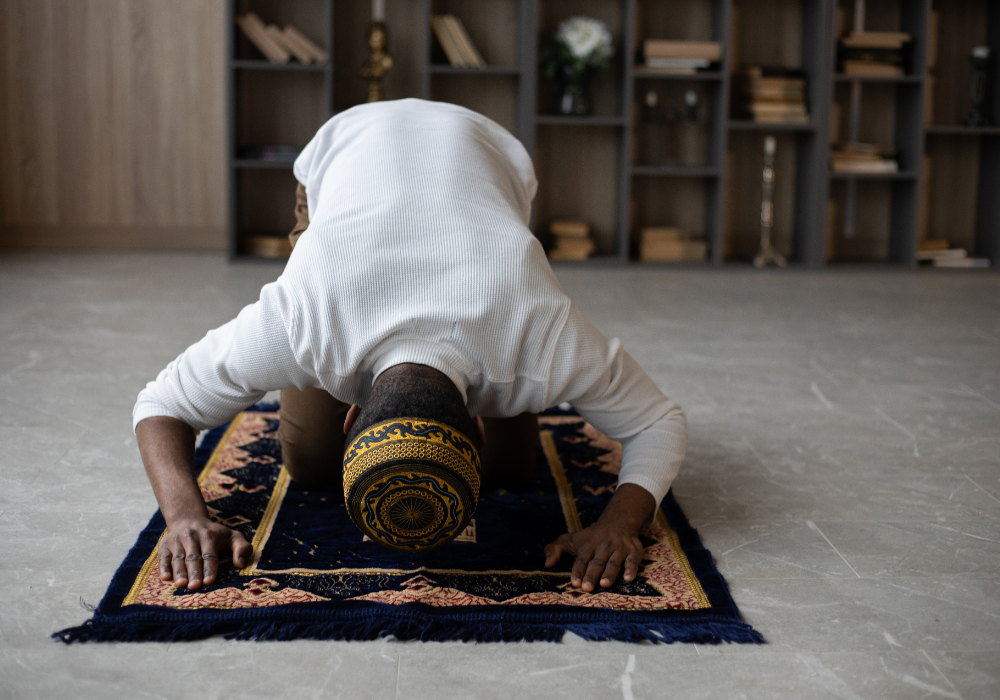
In Islam, peace isn’t a once-in-a-while feeling—it’s something you return to five times a day. Through prayer (salat), Muslims pause at specific intervals to reconnect with God, center themselves, and reorient their lives. It’s not just a religious obligation—it’s a daily reset button. It reminds the mind, body, and spirit where peace is rooted.
That rhythm matters. It creates structure in the middle of chaos. Even when the world feels unstable, you have something sacred to return to. The Arabic word “Islam” itself shares a root with “salaam,” meaning peace. It’s baked into the foundation of the faith. As stated by writers for the Asian Journal of Islamic Psychology, performing salat has restorative effects, such as reducing mental fatigue and stress, by enhancing parasympathetic nervous system activity and increasing alpha brainwave patterns associated with relaxation. Peace isn’t just an outcome. In Islam, it’s a rhythm that keeps calling you back to yourself.
4. Hinduism teaches that peace comes from understanding your true self.
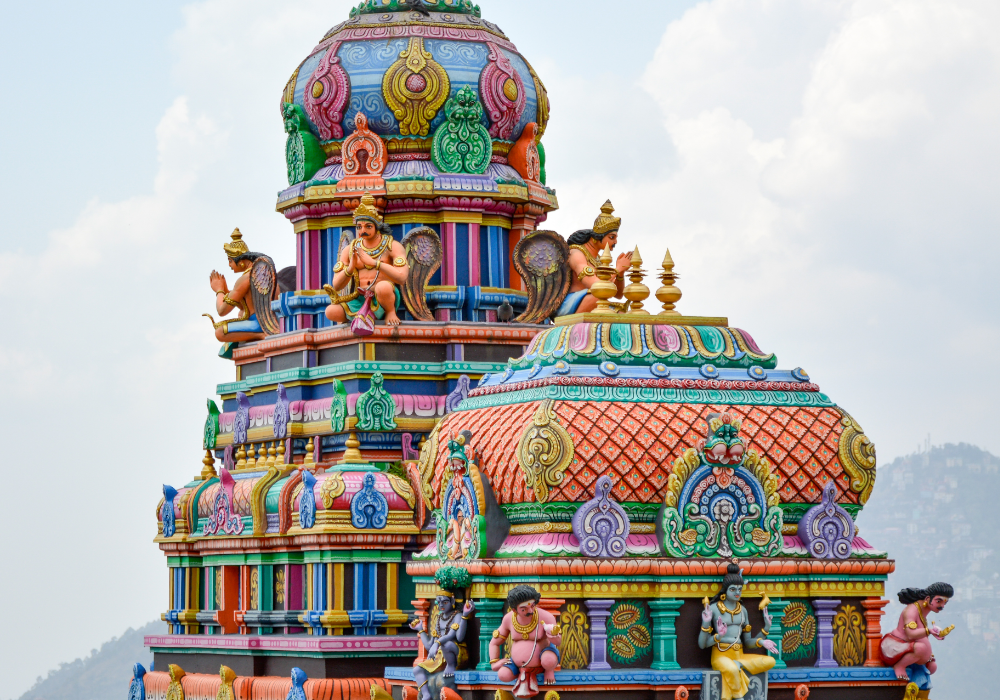
In Hindu philosophy, the idea of “Atman” refers to your truest self—not your job, your status, or your thoughts, but the eternal presence underneath all of it. That self isn’t anxious. It isn’t striving. It’s already whole. Peace comes when you realize you’re not your circumstances—you’re the one watching them unfold.
This perspective doesn’t deny the messiness of life. It just shifts your identity away from the storm and toward the stillness within it. Meditation, chanting, and study are ways to peel back the layers and reconnect with that core. You’re not lost—you’ve just forgotten what you already are. And remembering brings a deep kind of calm. Hinduism doesn’t promise a pain-free life. But it offers a path to see through it all, knowing that the part of you that watches quietly is untouched by the chaos. That’s where peace waits.
5. Judaism honors peace as something built in community, not just solitude.
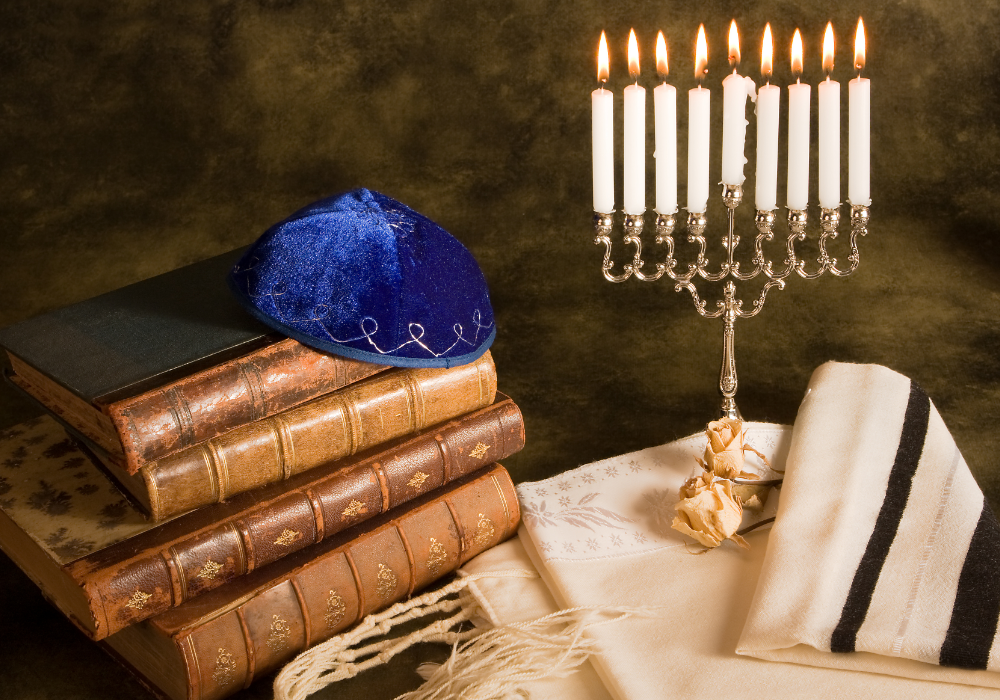
In Judaism, peace—“shalom”—isn’t just about inner stillness. It’s about wholeness, harmony, and justice in the world around you. It’s communal. It’s relational. The Jewish tradition teaches that peace isn’t something you find alone on a mountaintop—it’s something you co-create through compassion, accountability, and collective care.
Shabbat, the weekly day of rest, offers a built-in pause from striving. It’s a taste of peace as it should be—no work, no pressure, just presence. But it’s shared with others: family, community, ritual. In Jewish practice, the pursuit of peace isn’t passive.
It’s active. It’s making things right, speaking up when needed, and seeking wholeness in broken systems. That kind of peace ripples inward. When your community feels safe, supported, and seen, your nervous system relaxes, too. Judaism reminds us that peace doesn’t just live in quiet—it can grow through justice, ritual, and connection.
6. Taoism teaches that peace is found in surrender, not control.
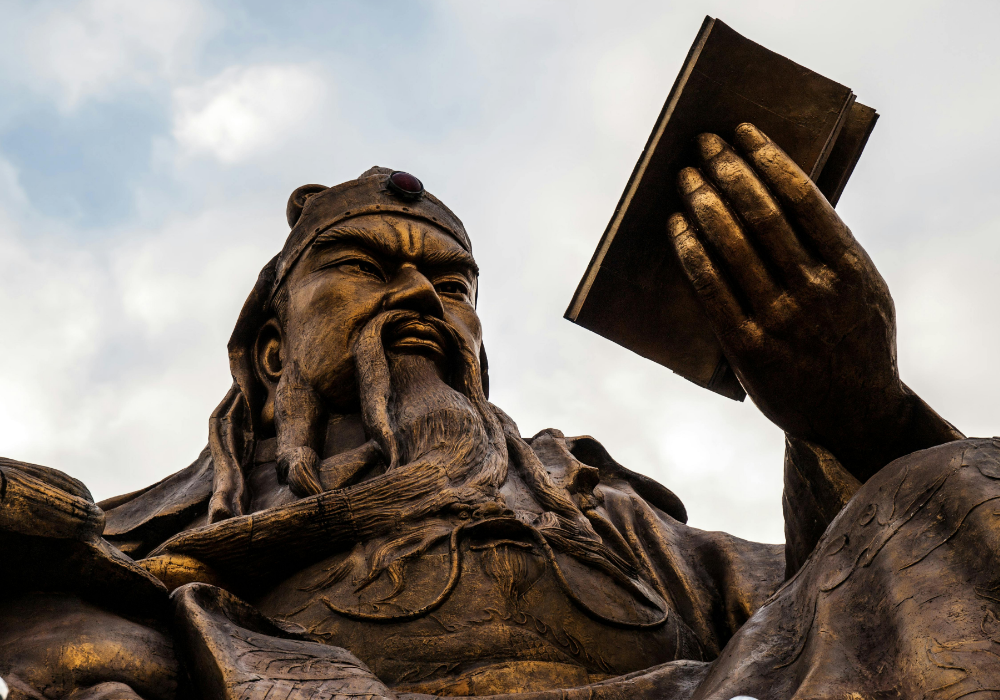
Taoism invites you to stop fighting the flow of life. The Tao—often translated as “the Way”—is the natural order of things. It doesn’t push. It doesn’t force. It moves like water: soft, steady, powerful. The Taoist path to peace isn’t about achieving more—it’s about resisting less. When you stop trying to control every outcome, you create space for peace to enter.
That doesn’t mean you become passive. It means you act in harmony with what’s already unfolding, instead of against it. You trust timing. You listen more than you speak. You learn to let situations evolve instead of micromanaging them into place. This philosophy can be surprisingly radical in a world built on hustle and control. But there’s relief in realizing you don’t have to fix everything. Taoism offers peace through alignment, not dominance—and that shift in approach can soften even your most anxious moments.
7. Sikhism reminds us that service dissolves the ego and restores balance.

Sikh teachings emphasize selfless service, or seva, as a direct route to peace. In this tradition, when you serve others without seeking praise, recognition, or reward, something inside you shifts. The ego quiets down. The constant comparison and striving fall away. What’s left is connection, humility, and purpose—the ingredients of deep inner calm.
Langar, the community meal served at Sikh temples, is a living example. Everyone eats together. Everyone serves together. No hierarchy. No performance. Just shared humanity. This practice isn’t just charity—it’s a spiritual discipline. Sikhism teaches that the quickest way to get out of your own suffering is to focus on relieving someone else’s. It reminds you that peace isn’t always found by looking inward—it’s often revealed when you step outside of yourself. The act of giving becomes the act of healing. And in that shared space, something real and quiet opens up.
8. Indigenous spiritualities root peace in deep connection to the earth.

Across many Indigenous traditions—from the Navajo to the Maori to First Nations in Canada—peace is not just personal. It’s ecological. It’s about living in balance with the land, the animals, the seasons, and your ancestors. The earth is not a resource to be managed—it’s a relative to be respected. Harmony with nature becomes harmony within.
Ceremonies, storytelling, and seasonal rituals all reflect this worldview. The land teaches patience, cycles, and interdependence. When you move with it, instead of against it, peace feels less like a mental state and more like a natural rhythm.
It’s grounding in the truest sense. In a modern world that’s often disconnected from the environment, these traditions remind us that inner peace and ecological peace are inseparable. When you remember your place in the web of life—not above it—you walk more gently, breathe more deeply, and carry a peace that doesn’t rely on escape.
9. Jainism teaches that nonviolence extends to thoughts, not just actions.
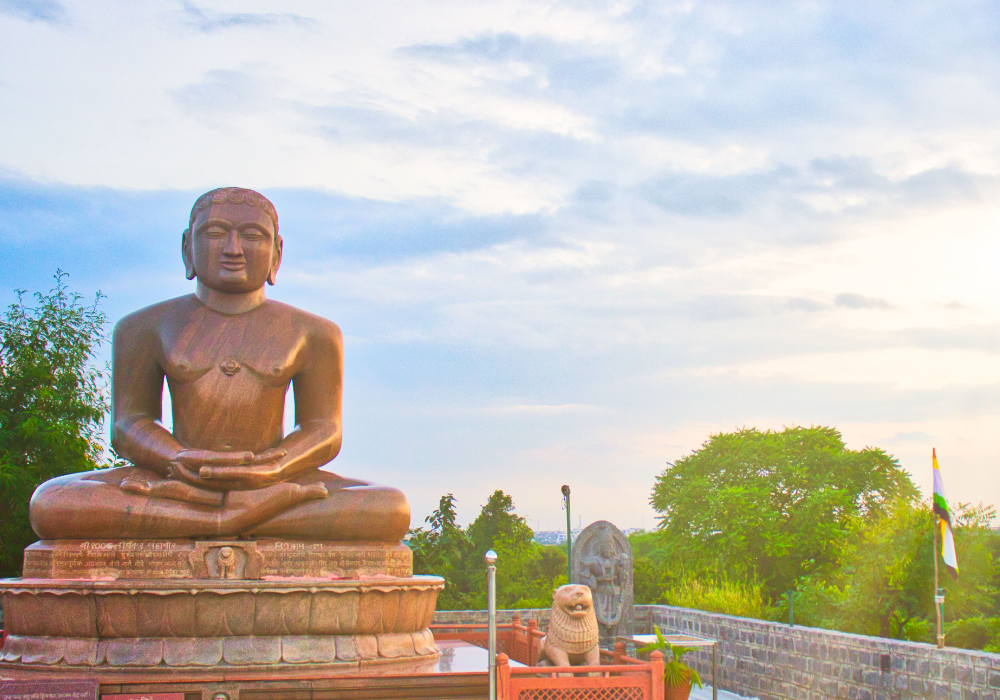
Ahimsa, or nonviolence, is at the heart of Jain philosophy—and it goes way beyond not hurting others. In Jainism, real peace begins when you also stop doing violence to yourself through judgment, harshness, and negative thoughts. The inner world matters just as much as the outer one.
That means watching your language—not just what you say to others, but what you whisper to yourself. It means choosing compassion over criticism, patience over punishment. Jains believe that every act, every intention, ripples outward. So peace isn’t just about behavior. It’s about cultivating a mindset that does no harm. Imagine what would shift if you stopped waging mental war on yourself every day. Jainism offers a path where gentleness becomes strength, restraint becomes freedom, and kindness toward all living beings—yourself included—isn’t optional. It’s the foundation of a peaceful life.
10. Confucianism teaches that peace grows from living with integrity.
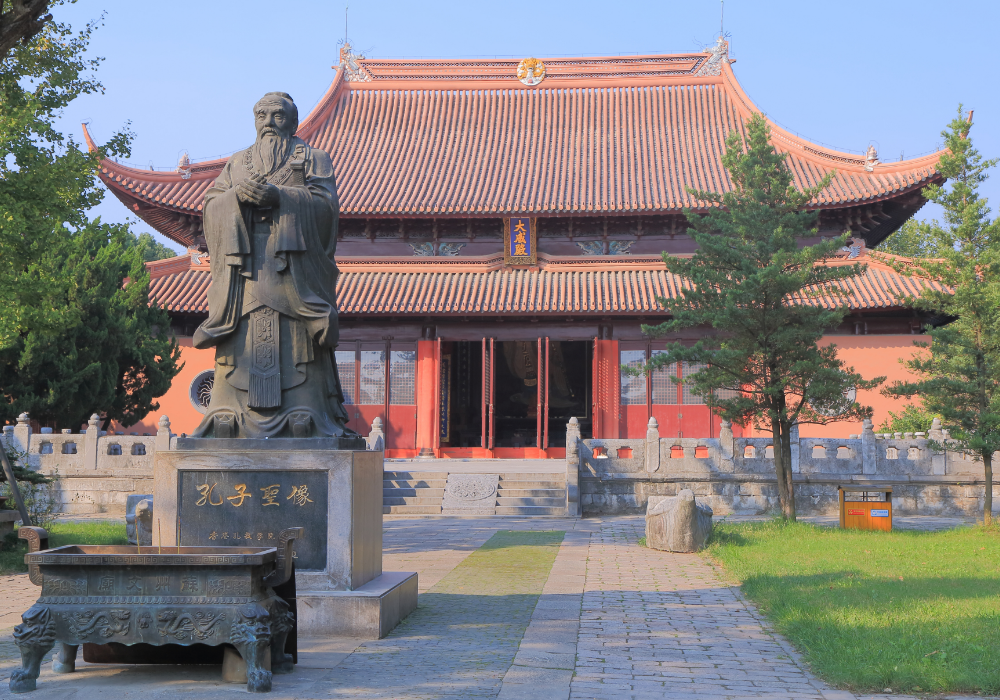
Confucianism isn’t about mystical experiences or inner stillness—it’s about living a life that aligns with your values, your duties, and your relationships. Peace, in this tradition, isn’t found by turning inward—it’s found by showing up honorably in the world. When your actions match your principles, and when you treat others with respect, dignity, and care, inner calm naturally follows.
Confucian teachings focus on balance between self and society. You cultivate peace through ritual, discipline, and moral clarity. It might sound strict, but it’s deeply human. When you know who you are and what you stand for, decisions become clearer. You don’t waste energy pretending. You lead by example. And in that alignment—between who you are privately and who you are publicly—there’s a quiet kind of confidence. Peace in Confucianism isn’t passive. It’s earned through integrity, and it deepens with every thoughtful choice.
11. Baha’i faith teaches that peace starts with unity—within and between us.
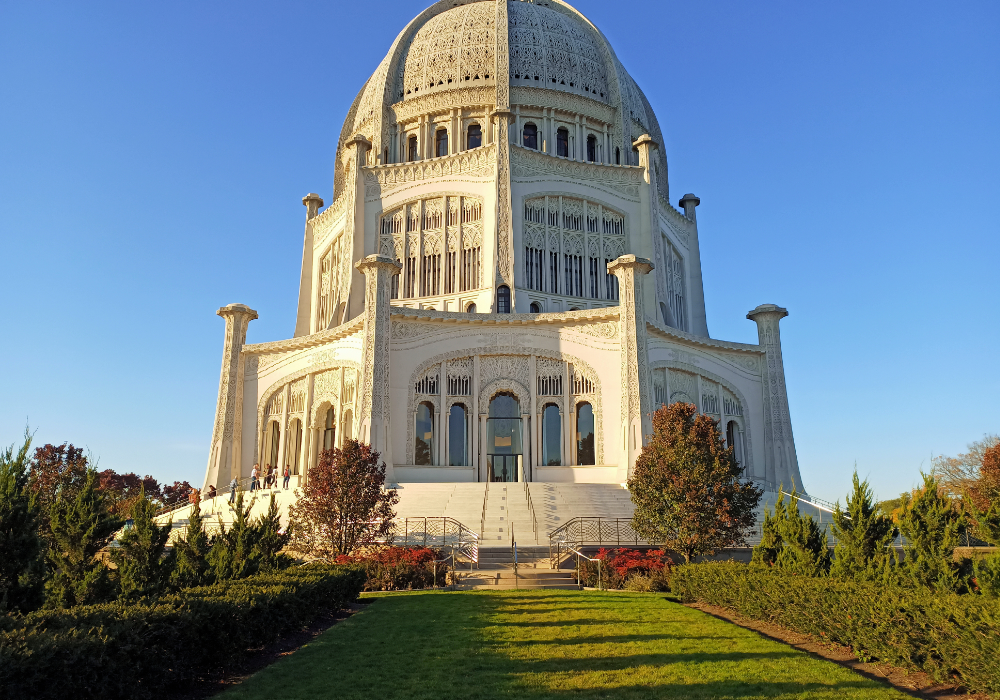
The Baha’i tradition is built on the idea that all of humanity is one family, and that lasting peace will only come through unity. But that unity doesn’t just apply to nations and systems. It applies to your own heart. Are your thoughts, values, and actions aligned—or are they constantly at war? The more inner conflict you carry, the harder it is to find peace outside yourself.
Baha’i teachings encourage reflection, consultation, and a constant striving toward harmony—internally and in community. Peace isn’t just about feeling good; it’s about choosing the hard work of compassion, even when it’s inconvenient. And it’s about believing that your own healing contributes to a larger collective healing. Unity, in this context, is both the path and the destination. When you stop separating yourself—from others, from truth, from your own deeper self—peace doesn’t feel so far away anymore. It feels like home.
